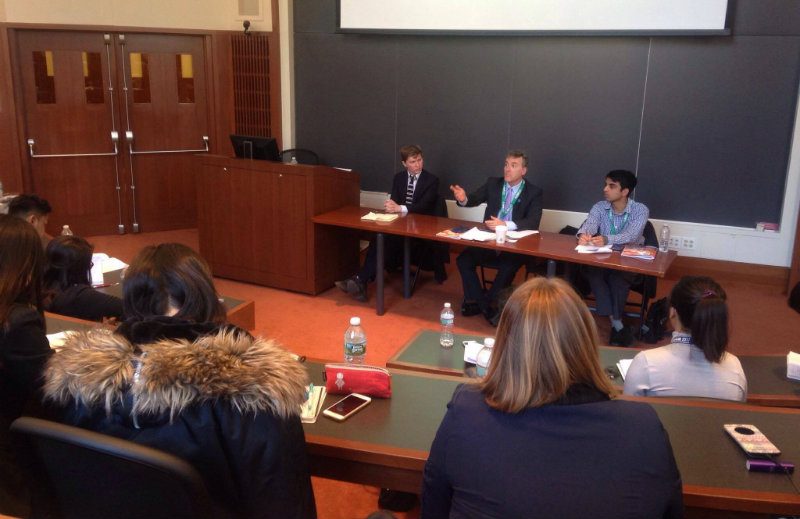SUMMARY
This is AI generated summarization, which may have errors. For context, always refer to the full article.

BOSTON, USA– The Philippines needs global intervention to address the human rights violations involving the country’s war against drugs.
This was according to Human Rights Watch Deputy Director Phelim Kine on Saturday, February 18, at the Harvard Project for Asian and International Relations (HPAIR) conference held at Harvard University.
“What we are advocating is that there is no way, in its current form, that the Philippine government can fix this. It needs to be an urgent international intervention or an international body investigation,” Kine explained.
Speaking before Asian youth delegates for the Humanitarian Affairs panel at the conference, Kine said that human rights violations in the Philippines is both “unique and distressing because the president is giving his full support.”
“The president is an active cheerleader. He promised in a rally right before the election that he will fill Manila bay with the bodies of thousands of suspected drug users. He is one of the rare politicians who deliver on their promise. Unfortunately, they are extremely abusive,” Kine said.
Since June 2017, 2,555 drug suspects have been killed at police drug operations while 3,930 others have been murdered by “unidentified gunmen” or vigilantes.
Following the scandal related to the murder of a South Korean businessman inside Camp Crame, President Rodrigo Duterte ordered the Philippine National Police (PNP) to stop all anti-drug operations nationwide in late January.
Despite this, drug-related killings continued.
The latest police tally given to the Agence France-Presse showed there were 4,076 “murder cases under investigation” on February 13. This was 146 more since Duterte ordered the PNP to withdraw from the war on drugs, which rights groups said only proved that the extrajudicial killings had slowed but not discontinued.
Describing the Philippine situation as a human rights calamity, Kine also said that what has been happening in the country is surprising and unfortunate considering the country’s history from a Ferdinand Marcos’ multi-decade authoritarian dictatorship which resulted to a strong civil society and free media.
“The tragedy of the Philippines right now is that a sizeable part of the Philippine population have decided or accepted that a segment of the population is disposable,” the human rights advocate added.
Where are the watchdogs?
Kine also criticized some leftist human rights groups in the Philippines – specifically the Karapatan, an alliance of individuals, groups and organizations working for the promotion and protection of human rights – for supposedly staying silent against the extrajudicial killings “because President Duterte has identified itself as a leftist.”
“We have had a complete abrogation of betrayal of the civil society role in this…I think there really needs to be a radical self-examination by these self-proclaimed watchdogs of the public good as to how they fail 7000 plus people because they decided these people are not worth protecting,” Kine suggested.
One of the campaign promises of Duterte includes ending the 40-year insurgency of the communist rebels that has killed around 40,000 people. The CPP claims it has 150,000 cadres but the military puts their number at around 4,000.
However, the Philippine president has recently scrapped the talks and the immunities of the NDF consultants days after the communist armed wing New People’s Army (NPA) terminated its 5-month-old unilateral ceasefire because of supposed ceasefire abuses by the military.
Kine ended his talk by emphasizing the role of human rights defenders in the country’s war on drugs, adding that they serve to “watch over the minority from the depredation of the majority. There are a very few places where the minority can turn that dynamic around.” – Rappler.com
Add a comment
How does this make you feel?
There are no comments yet. Add your comment to start the conversation.